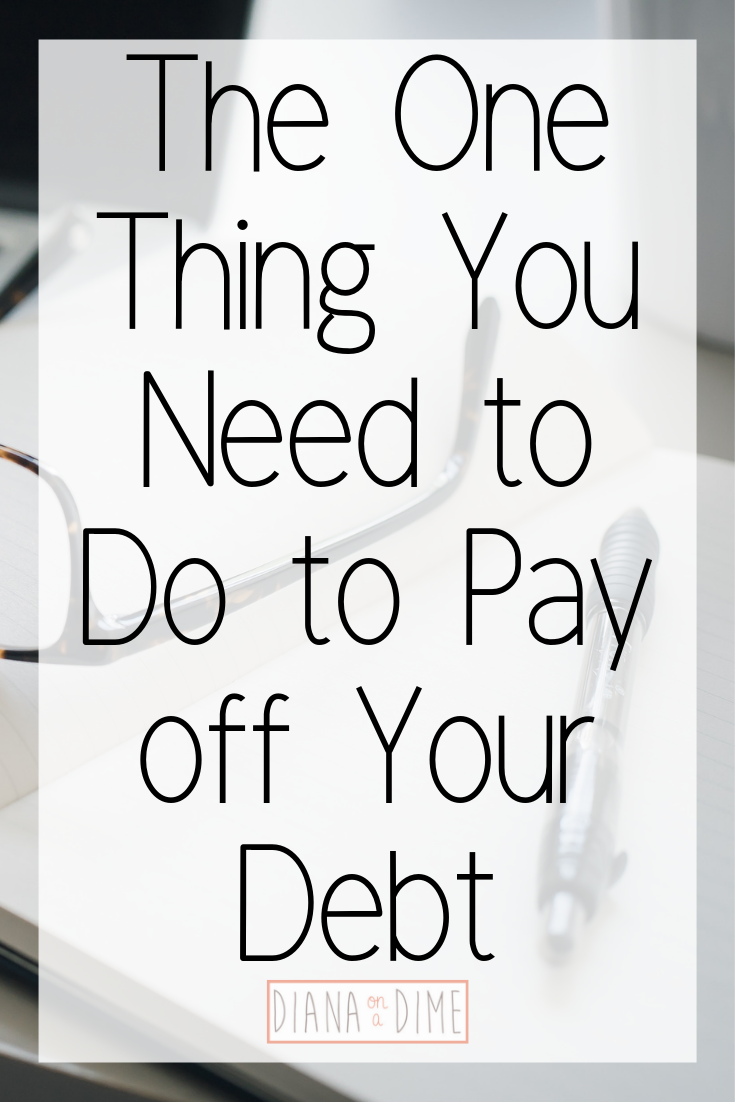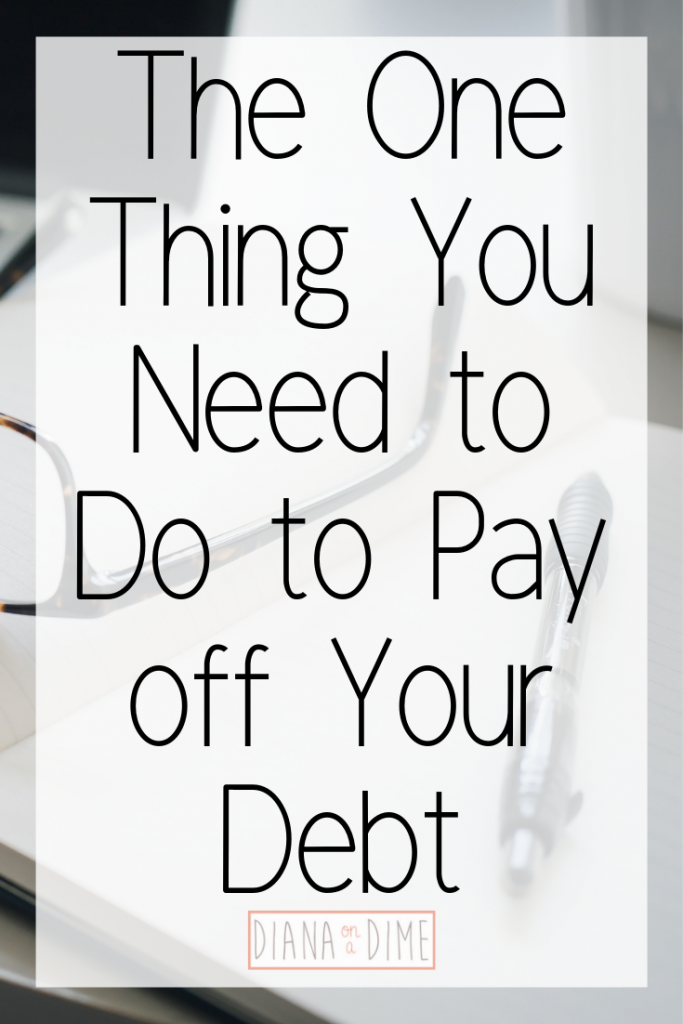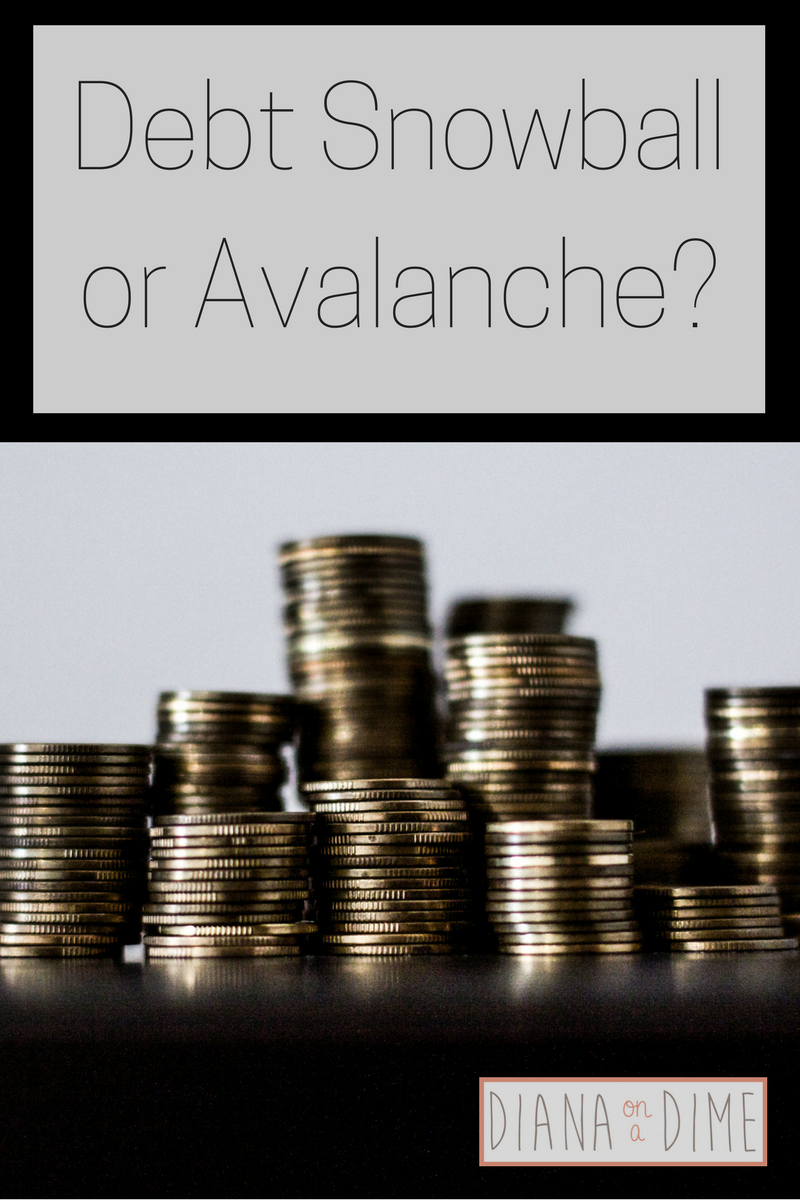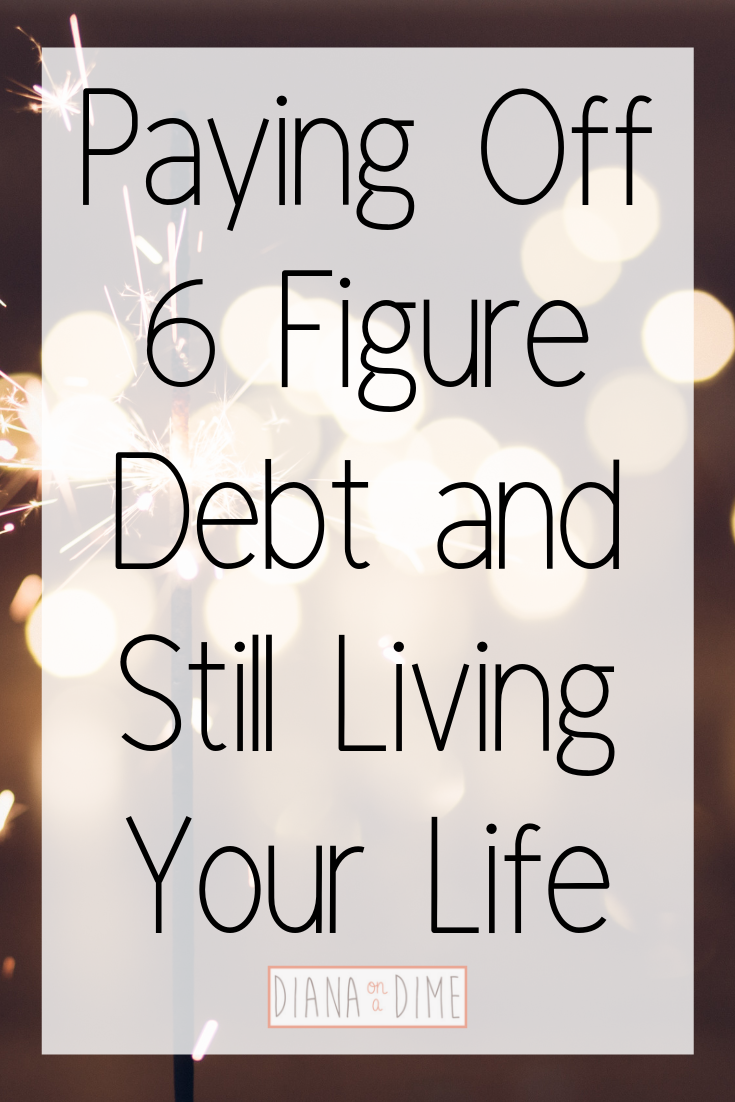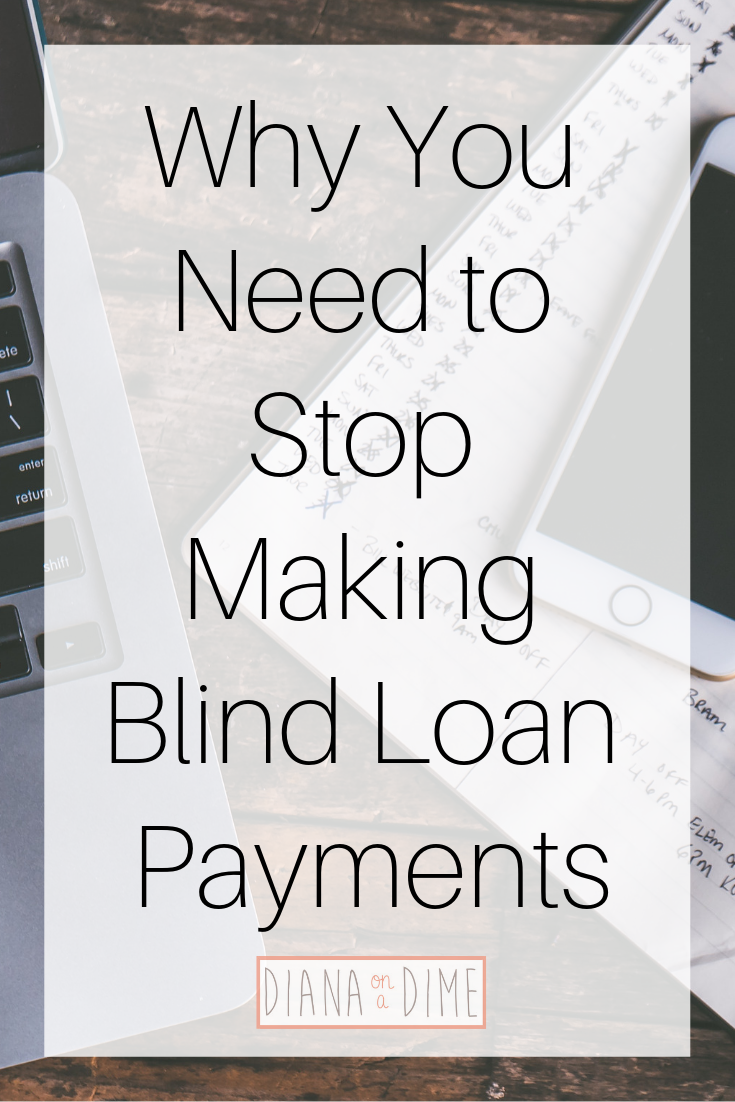The One Thing You Need to Do to Pay off Your Debt
This post may contain affiliate links. Check out my Disclosure Policy for more information.
Paying off debt isn’t hard to do on paper. You increase your income and decrease your spending. Simple, right?
On paper, yeah, it is easy.
The problem is that it takes a ton of changes in behavior to actually get the job done. You can create the best plan in the world on paper, but executing that plan is what actually matters.
And that’s what is so hard. The actual execution of the plan is the hardest part. It takes a lot of diligence and desire to make the behavioral changes that are needed to get it done.
Trust me, I’ve been there and still find myself struggling with this at times. I started with $201k in student loans and a monthly payment of $2,000 while only making about $3,000. I had no choice but to change my behaviors to see results.
So here’s the one thing you absolutely need to do to pay off your debt.
Stick to your budget.
It’s not just about creating the budget. A planned budget is great. Having a plan for your money is absolutely important.
But, if you just let that plan sit around all month and don’t check in with it, it makes zero sense to even make it. A budget does nothing for you, if you don’t actually track your spending.
Depending on what method you use, you should be tracking the money coming in and going out. When we don’t do this step, the budget is just an idea, not a plan.
If you truly want to get out of debt, you absolutely need to stick to a budget.
Now, will you need to stick to one forever? Maybe not. I know for myself, I don’t check in as much as I once did. My spending habits have become pretty consistent, so I have money dates about once a week now.
If you’re just starting, get in the habit of tracking your spending as soon as it is done. This will make you realize where exactly your money is going and how much more money you have in a certain category.
Creating an accurate budget to pay off your debt.
The key to sticking to a budget is to create a realistic budget. You want to set yourself up for success when you first start budgeting. That’s why a realistic budget is so important.
If you fail to create a realistic budget and you aren’t tracking your spending, you won’t be as effective in your debt payoff.
Sure, we all want to have the picture perfect budget and only spend minimally. But, that’s just not realistic. Create a budget that actually reflects your spending.
This is especially true when you’re first getting started. If you’re annoyed by how much you spend in certain areas, make an effort to change that spending.
If you’re able to lower your spending by the end of the month, do something with that leftover money.
This is where zero based budgeting comes in.
Zero based budgeting is an amazing method of budgeting to reach your goals faster. When used correctly, it allows you to send more money to your big money goals every month.
How it works is by giving every single dollar that comes into your budget a job. This means that at the beginning of the month, you budget for every dollar that you have.
As the month progresses you update your actual spending in your budget and keep track of what you have left.
At the end of the month, you zero out your budget. If you have money leftover, you apply that amount to whatever money goal you are working on.
This is how zero based budgeting is so effective. It doesn’t leave any money hanging out in your checking account.
There’s nothing bad about letting money hang out in your checking account. It just isn’t helping you in any kind of way.
Especially if you have debt. Your debt is increasing every day with interest, why not pay it off with that money that’s sitting around.
Even if you don’t have debt, you shouldn’t be leaving this money sitting around. Apply that money to some serious goals, invest it, move it to a high yield savings account, do something with it that helps you increase your wealth!
So, what’s stopping you from doing the one thing to pay off your debt?
Hearing you need to stick to a budget can be scary. It has such a negative rep when it really shouldn’t. Maybe calling it a money plan is better?
I don’t know. What I do know is that you need to get yourself a plan for your money and stick to the plan to pay off your debt.
Without this important tool, you’re going to be wondering where all your money has gone by the months end.
So, what’s stopping you from sticking to a budget? For me, it was hard to make the big changes I needed to make to really see a difference on my teaching salary. It took time, but I did it. Sometimes, all it takes is some accountability.
I’m here for ya! Let’s get you a money plan and see some major changes get made. I wanna know, what’s stopping you from sticking to a budget?

